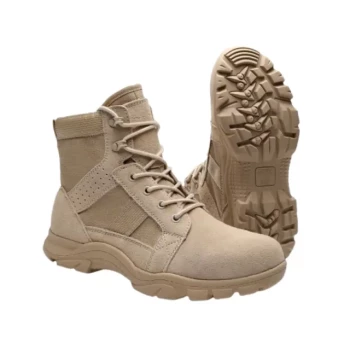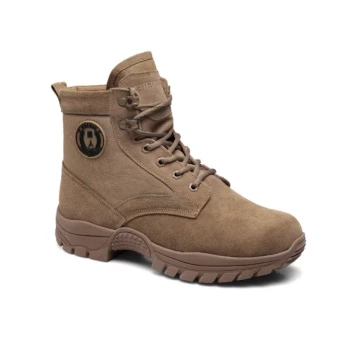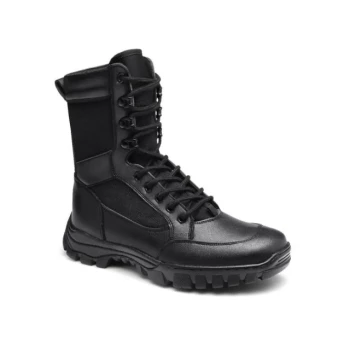At first glance, hiking boots seem like the ultimate tool for any trail, but their core strengths are directly responsible for their most significant drawbacks. The primary disadvantages of hiking boots are their substantial weight, inherent rigidity, limited breathability, and the mandatory break-in period required to achieve comfort.
The drawbacks of a hiking boot are not design flaws; they are the intentional trade-offs made to deliver maximum durability, ankle support, and protection on the most demanding and rugged terrain. Understanding this is key to choosing the right footwear.
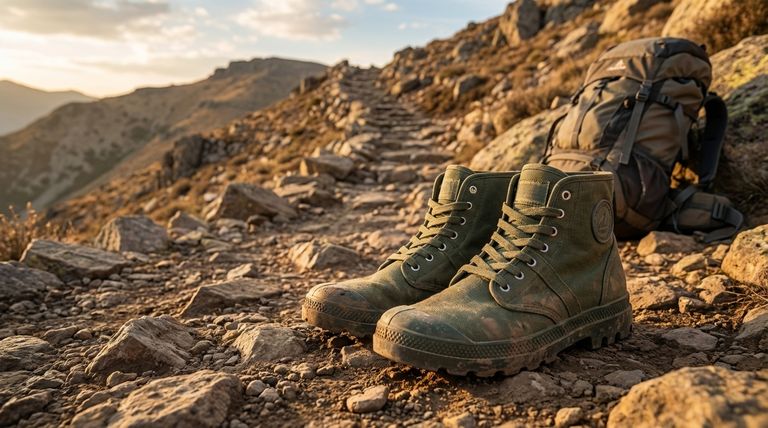
The Burden of Weight and Bulk
A boot's construction is its heaviest feature. The very elements that provide stability—thick leather, protective rands, and stiff soles—add significant weight compared to lighter footwear.
The Impact on Energy and Efficiency
Every ounce on your feet requires more energy to lift with each step. Over thousands of steps on a long hike, the extra weight of a boot translates into increased fatigue and reduced walking efficiency.
How Bulk Affects Agility
Beyond weight, boots are simply bulkier. This can make you feel less nimble and connected to the trail, especially on terrain that requires precise foot placement. Lighter options like trail runners offer a more athletic and less clumsy feel.
The Paradox of Protection: Rigidity and Comfort
Hiking boots are engineered to be stiff. This rigidity protects your feet from sharp rocks and provides a stable platform when carrying a heavy pack, but it comes at the cost of initial comfort and flexibility.
The Necessary Break-In Period
Unlike shoes that are often comfortable out of the box, most hiking boots, especially those made of leather, require a break-in period. This process allows the stiff materials to mold to your foot, but it can involve initial discomfort and even blisters.
A Restrictive Feel
The high-cut design that provides excellent ankle support can also feel restrictive. For hikers on well-maintained trails, this level of rigidity can be unnecessary and impede the natural movement of the foot and ankle.
Understanding the Trade-offs
The decision to wear a hiking boot is a calculation of trade-offs. You are accepting certain disadvantages in weight and flexibility in exchange for a higher level of protection and support.
When Protection Becomes Overkill
Using a heavy-duty backpacking boot for a simple day hike is a classic case of being over-equipped. The boot's weight and stiffness become liabilities, making the hike less enjoyable and more tiring than it needs to be.
The Breathability Problem
The durable materials and waterproof membranes that keep water out also trap heat and sweat in. In warm conditions, this lack of breathability can lead to uncomfortably hot, damp feet, creating the perfect environment for friction and blisters.
Making the Right Choice for Your Goal
The "best" footwear is the one that aligns with the terrain, your pack weight, and your personal hiking style.
- If your primary focus is multi-day backpacking on rugged, off-trail terrain: The unparalleled support and durability of a hiking boot are worth the trade-offs in weight and comfort.
- If your primary focus is fast, lightweight hiking on well-maintained trails: The drawbacks of a boot make a more breathable and flexible trail runner a superior choice.
- If your primary focus is mixed-condition day hiking: A lighter hiking shoe often provides the ideal balance, offering more support than a trail runner without the weight and rigidity of a full boot.
Ultimately, understanding these drawbacks empowers you to match your footwear precisely to your adventure.
Summary Table:
| Drawback | Key Impact | Ideal Alternative |
|---|---|---|
| Weight & Bulk | Increased fatigue, reduced agility | Trail runners for speed |
| Rigidity | Requires break-in, restricts movement | Hiking shoes for flexibility |
| Breathability | Traps heat and moisture in warm conditions | Lightweight, breathable footwear |
As a large-scale manufacturer, 3515 produces a comprehensive range of footwear for distributors, brand owners, and bulk clients. Whether you need durable hiking boots for rugged terrain or lightweight trail runners for speed, our production capabilities cover all types of shoes and boots. Let us help you provide the perfect footwear for every adventure. Contact us today to discuss your needs!
Visual Guide
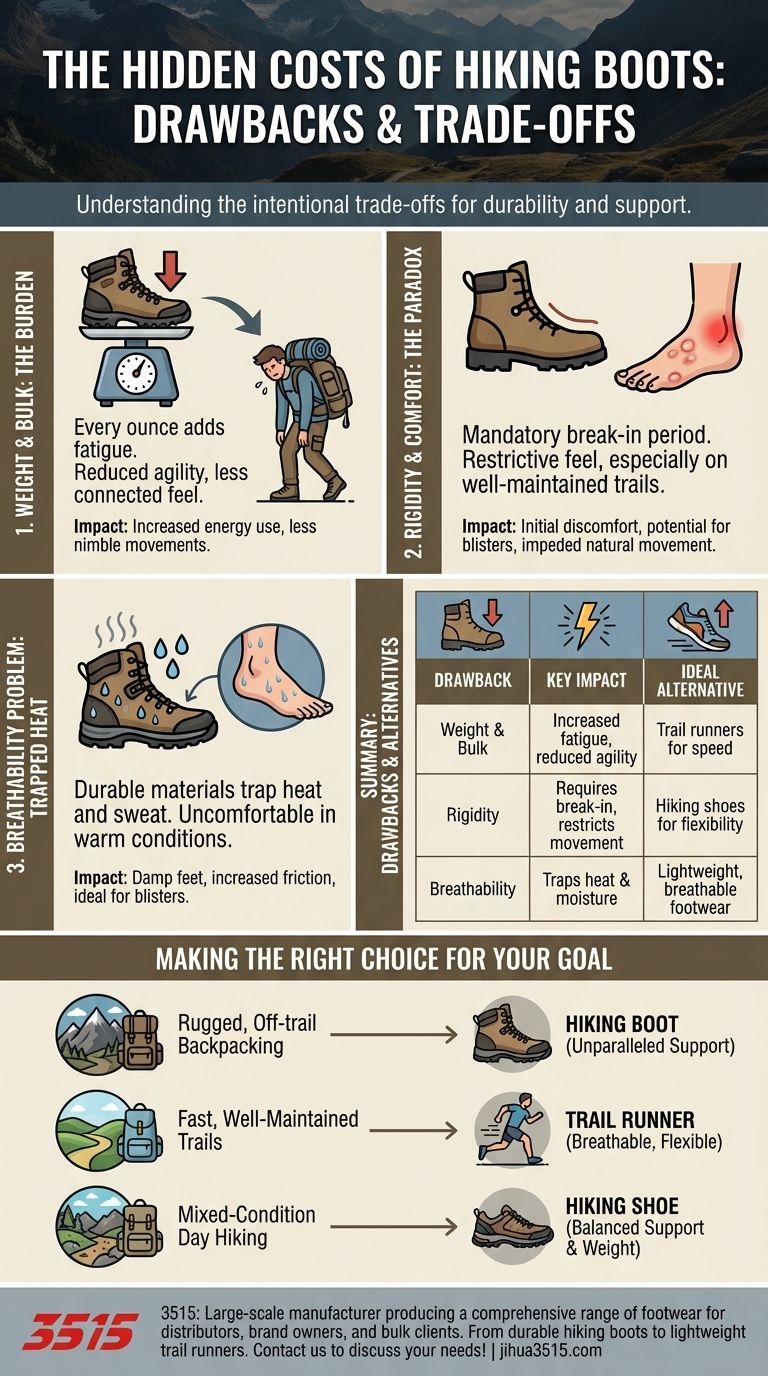
Related Products
- Factory-Direct Wholesale Canvas Boots with High-Traction Rubber Soles
- Wholesale High-Traction Camo Boots - Custom Manufacturer for Brands
- Safety Footwear Wholesale Manufacturer for Custom OEM/ODM Production
- Factory Direct Wholesale Rain Boots Durable Waterproof & Fully Customizable
- High Performance Fire-Retardant Waterproof Safety Boots
People Also Ask
- How do hiking boots improve traction on rough terrain? The Science of Grip & Stability
- What features should be considered when choosing lace-up boots for hiking? A Guide to Perfect Terrain Matching
- Why is it important to break in hiking shoes before a long hike? Prevent Blisters & Ensure Comfort
- What are the common features of the hiking footwear mentioned? Find the Perfect Fit for Your Trail
- Why is it important to clean hiking boot outsoles? Ensure Safety and Protect the Environment
- Are trekking shoes worth it? Essential for Safety and Comfort on the Trail
- What is the advantage of hiking shoes and trail runners in terms of stability? Find Your Perfect Trail Footwear
- What are the main drawbacks of lightweight hiking shoes? Understanding the Trade-offs for Your Hike






